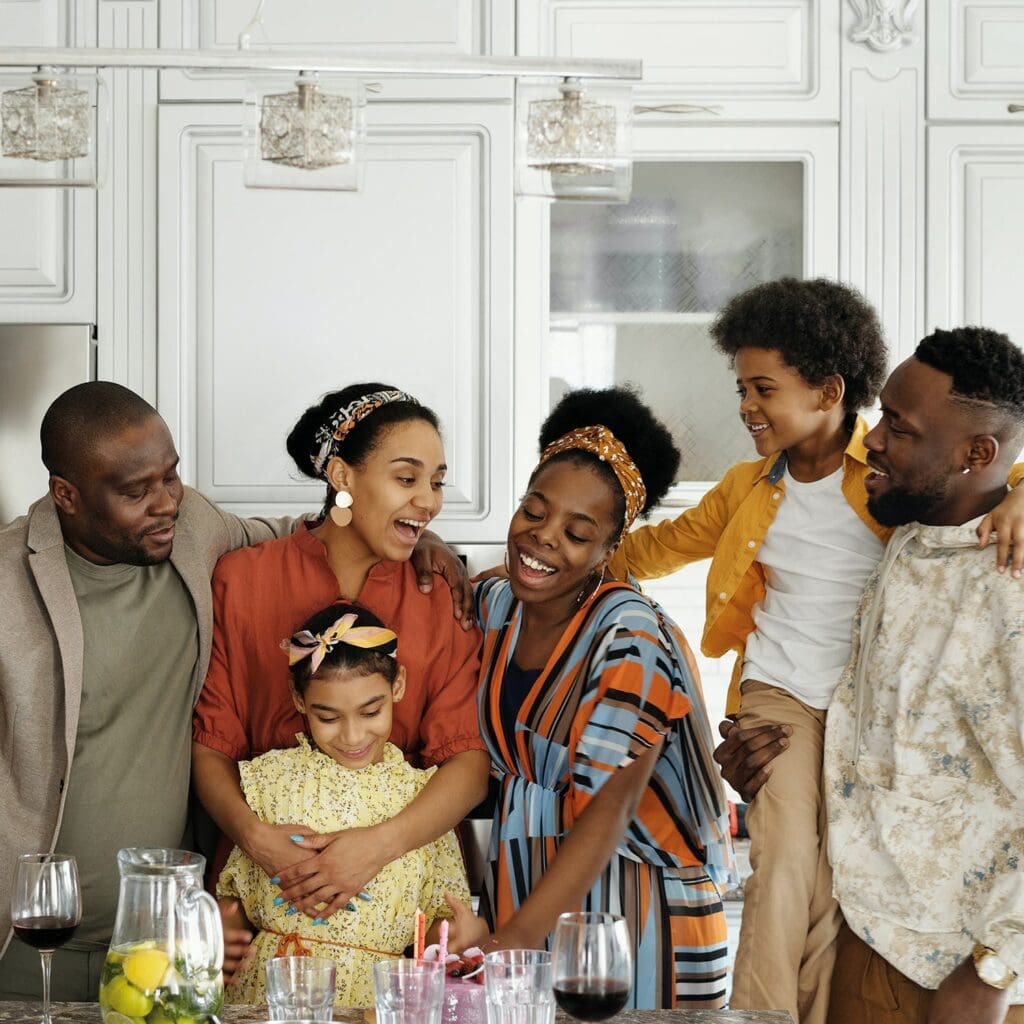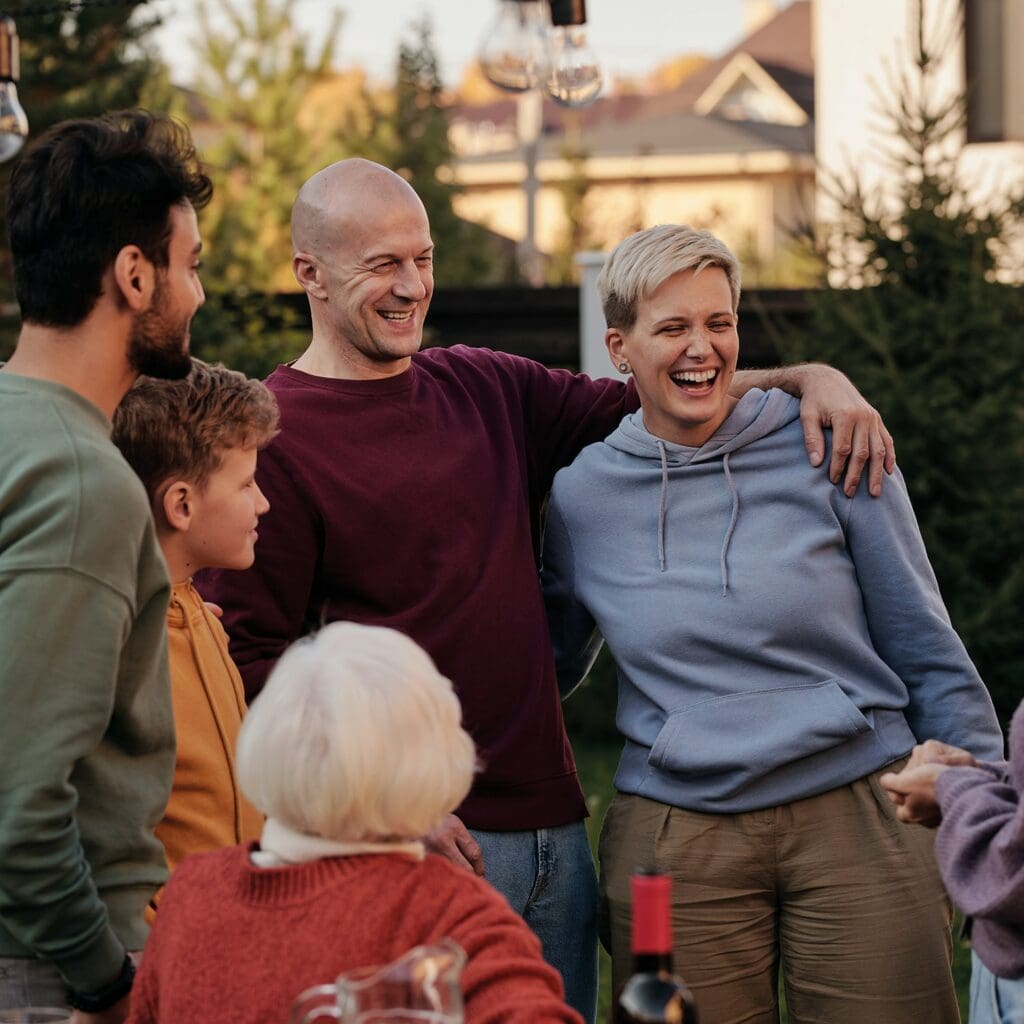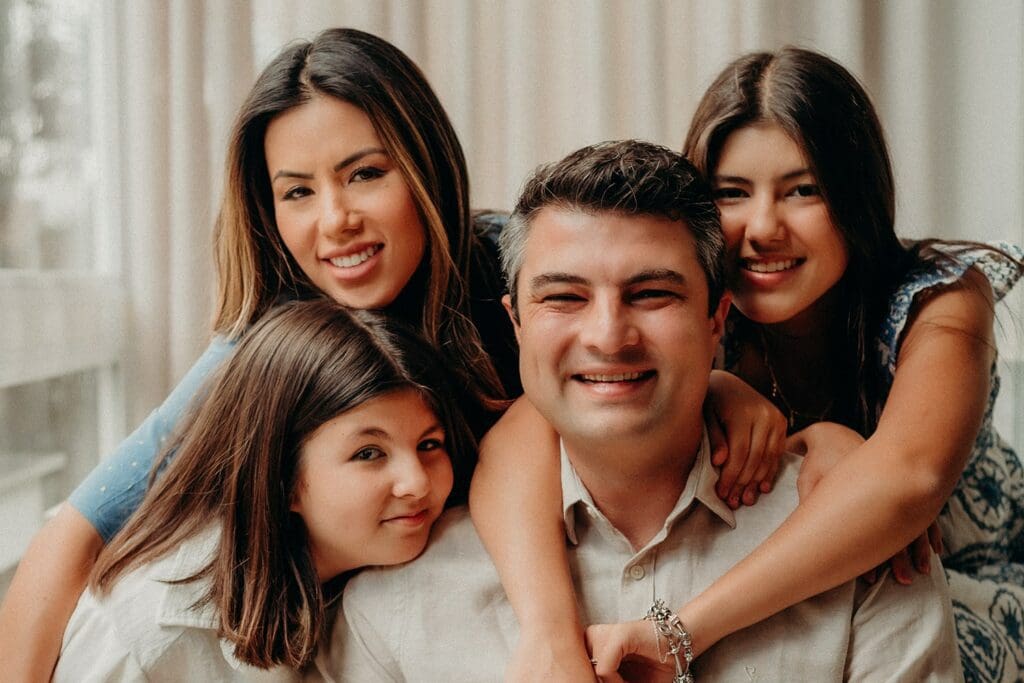Home » Your Support Hub » Living Well with FL » Friends and Family

To say that life with cancer can be a roller coaster would be an understatement. Some days will definitely seem better and easier than others. But it’s not just stressful and upsetting for the person living with cancer. When someone you are close to has cancer, it can be equally devastating, not least because it can be difficult to know how to support them.
Everyone copes differently with a cancer diagnosis. Their emotions can range from anger and frustration to disbelief, fear and refusal to accept the diagnosis. Some people may be able to accept the diagnosis and face their disease with strength and positivity. And often, these emotions will change from one day, week or even month to the next.
Depending on the type of person you are supporting, there may be times where you need to offer space, quiet time and to simply be there to listen to them. At other points, they may benefit from someone who offers positivity, distraction and fun. What’s important to understand is that there is no definitive guide to supporting someone with cancer. What they will need is to feel that you are in their corner, whatever they need at any given time.
If someone you love has cancer, it’s normal to worry about what you are going to say to them. Again, there are no rules about what is or isn’t appropriate. Every person is unique and so will respond in a different way to their diagnosis. Every loved one is unique too, and one of the most important things that you can do is to remain consistent in your behaviour as much as you can. Most people with cancer don’t want to be treated any differently because of their disease. Many want to feel the same way as they did before their diagnosis. You can support this by behaving in the same way with them as you usually do.
The best way to support someone living with cancer is to be sensitive to their emotions and to meet them where they are at any given moment. Make sure that they know that you are there for them.
Knowing what not to say can often be just as important as knowing what to say to someone with cancer. While everyone is different, the general consensus is to simply try and be mindful of what you say, and to avoid overreacting or trying to make out that you understand how the person with cancer feels. It’s impossible to put yourself in their shoes no matter how hard you try.
Reflective listening is a great skill to develop. This ensures that you are really hearing what you are being told and taking it on board, and this can make your loved one feel heard and supported. Reflected listening involves reconfirming what you’ve been told, for example by saying ‘so what you’re saying is that you feel like…’. Remind them, it’s ok not to be ok.
You should absolutely avoid giving any medical advice, no matter where you have read it, seen it or heard it. It may not be accurate, and it certainly won’t reflect the specific nuances of your loved one’s individual condition. Instead, leave any medical advice to their doctors and other health professionals.


As well as providing invaluable emotional support, there are also a number of practical ways in which you may be able to help them. Living with cancer can be physically and emotionally draining and even simple tasks like dropping round some groceries, updating others on their latest appointment results (with their permission) or driving them to an appointment can be invaluable.
One thing that we know for sure is that in most instances, it’s best to simply do things, rather than offer and wait for a response. Don’t ask them if they would like you to drop off a hot meal, just make it and drop it off, being prepared to leave it without any interaction if necessary. Knowing someone cares can be all it takes to make the difference between a good day and a bad day for someone with cancer.
Here are some tips on practical things you can do to support someone with cancer:
• Send a card in the post.
Exercise has been proven to reduce the side effects of cancer treatment. It improves quality of life and can reduce tiredness as well as anxiety and depression. It also strengthens your muscles and joints and prevents treatment related muscle loss.
In people with lymphoma, exercise has been shown to not only lower the risk of a person developing non-Hodgkin lymphoma, it can also have a positive impact on survival in lymphoma patients.
A study by the Mayo clinic (1) has proven that patients who exercised more before a diagnosis survived longer when they developed lymphoma than those less active to begin with. They also found that those who stepped up that exercise after a lymphoma diagnosis, had better survival rates than those who remained less active.
(1) Pophali P Larson MC. Rosenthal AC et al. The level of physical activity before and after lymphoma diagnosis impacts overall and lymphoma-specific survival. Blood 2017.130.914 (suppl).
As the saying goes, you can’t pour from an empty cup and friends, family and other caregivers should also think about their own wellbeing during their loved one’s cancer journey. It can be very difficult to support someone else when you are feeling emotionally or physically exhausted and the closer you are to them, the more responsibilities you may find yourself facing. For example, if a loved one has cancer you may find that you spend more time taking care of them, performing tasks that they can no longer do or simply worrying about them and talking to them.
Financial pressures can also be a common issue that causes stress and anxiety for the loved ones of those living with cancer.
You must make time for yourself to focus on your emotional and physical well-being. Try and eat healthily, get enough sleep and set aside time for relaxation and reflection.
